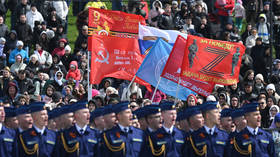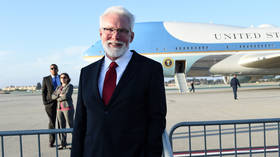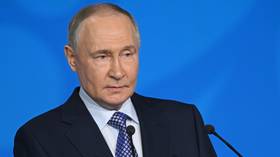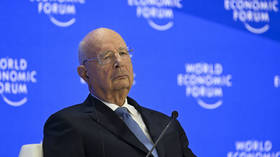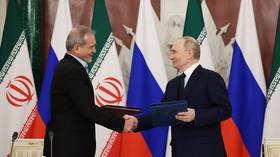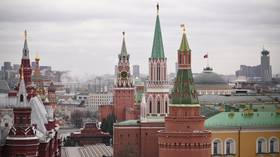UN Security Council unanimously adopts Syrian roadmap resolution
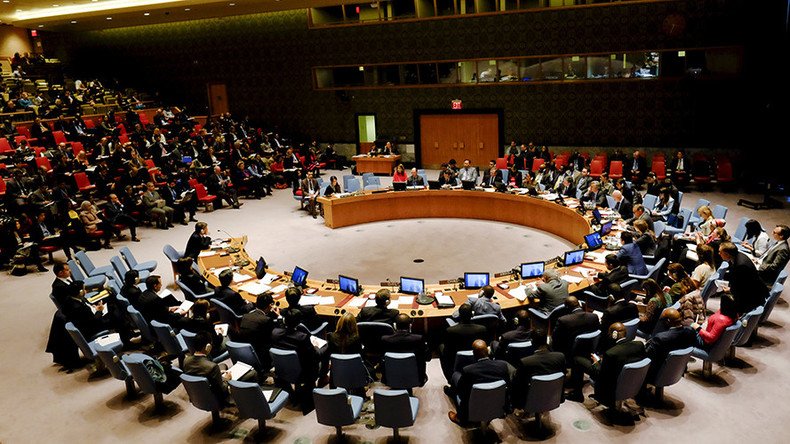
The UN Security Council has unanimously adopted a resolution calling for a ceasefire and political settlement in Syria. The resolution envisions the formation of a unity government and calls for an immediate halt to any attacks on civilian targets.
The resolution demands that all parties to the Syrian conflict “immediately cease any attacks against civilians.” A mechanism to monitor, verify, and report on the truce is to be worked out within a month.
The only groups excluded from the ceasefire are Islamic State (IS, formerly ISIS/ISIL) and Al-Nusra Front, Al-Qaeda’s branch in Syria.
The resolution also asks the UN to convene formal talks on a transitional government. The talks between the regime and opposition are targeted for early January.
The resolution expressed support for a Syrian-led political process that would set up “inclusive and non-sectarian governance” within six months and schedule a process for drafting a new constitution, with the aim of holding fair elections in 18 months.
After the resolution passed, US Secretary of State John Kerry, who chaired the UNSC meeting, said that it was the time “to put an end to indiscriminate bombing, torture and the bloodshed” in Syria, adding that significant progress had been made “that gives us grounds for encouragement.”
Russian Foreign Minister Sergey Lavrov noted that the Vienna format is the only way to bring all foreign players to the table and ensure a fair settlement in Syria through talks.
“Today’s unanimous vote in the [UN Security] Council should pave the way for the formation of a broad front against terrorism on the basis of the UN Charter, with the support of all on Earth who are opposed to terrorism, including the army of Syria, the Kurdish militia, and the armed forces of the Syrian patriotic opposition,” Lavrov said. “The air force of the Russian Federation, at the request of the legitimate government of the Syrian Arab Republic, is contributing to the completion of this task.”
“Only Syrian-led inclusive dialogue can put an end to untold suffering in Syria,” Lavrov said, stressing that Syria should remain a secular, unified, and multi-ethnic country.
New UN resolution pushes for the launch of Syria peace talks in early January https://t.co/3F3Z9mjC9ppic.twitter.com/DrCcZNVNhu
— China Xinhua News (@XHNews) December 19, 2015“Only the Syrian people are to decide on their future, including the fate of President Assad – this is an answer, included into the resolution, to attempts to enforce outside will on the Syrians,” Lavrov said.
"The fight against terrorism must be consistent and not opportunistic in nature, whether it be in Syria or anywhere else. Attempts to separate terrorists into good and bad are unacceptable,” he added.
According to Lavrov, “the resolution stresses the need to provide humanitarian assistance to the Syrian people… It must be provided in strict accordance with the guidelines of the United Nations, enshrined in General Assembly resolutions and the decisions of the Security Council, including the principle of the consent of the host government.”
"People of Syria have suffered enough" Ban Ki-moon's remarks at #UNSC#SyriaCrisis meeting: https://t.co/q05TAGKTnvpic.twitter.com/qhcV6rwYbN
— UN Spokesperson (@UN_Spokesperson) December 18, 2015Foreign ministers from 18 countries as well as the UN and Arab League representatives gathered in New York Friday to push the Syria roadmap. The group has already met twice in Vienna in the last six weeks and drafted a road map for the Syrian conflict reconciliation.
Apart from the UN and the Arab League, the group includes Russia, the US, the EU, the UK, Germany, France, China, Egypt, Jordan, Iran, Iraq, Italy, Qatar, Lebanon, the United Arab Emirates, Saudi Arabia and Turkey.
Lavrov speaking to Russian media after Vienna Group meeting, on his way to Security Council #Syriapic.twitter.com/8p7UqHubVW
— Nabil Abi Saab (@NabilAbiSaab) December 18, 2015During the conference preceding the UN Security Council meeting, new calls for Bashar Assad to step down were voiced, arguing that the Syrian President’s exit would facilitate the battle with terrorism, Lavrov said.
“We confirmed our position that – as the UNSC has repeatedly stressed – there can be no pre-conditions to fight terrorism,” Lavrov said, adding that such calls did not make it into the draft. He once again said it is up to the Syrian people to determine the future of their country and its current leader.
The conflict in Syria has lasted for more than four years with more than 300,000 killed.
Vienna talks: New elections to be held in Syria within 18 months
https://t.co/EjUsgXxHB5pic.twitter.com/Fa7CcHlEHz
— RT (@RT_com) November 14, 2015Another goal of the talks was to work out a mechanism for establishing which rebel groups in Syria will be eligible to take part in the peace process. For this purpose, Jordan, which was tasked with listing terrorist organizations in Syria, presented a document that includes 160 extremist groups, RIA Novosti reported, citing sources in the Russian Foreign Ministry.
“The list reflects positions of different sides,” Jordanian Foreign Minister Nasser Judah, who presented the document during the ISSG talks in New York, also said, according to TASS.
Only IS and Al-Nusra Front terror groups were exempt from the truce.
Earlier on Thursday, the UN Security Council unanimously passed a resolution submitted jointly by Russia and the US which allows punishing individuals or companies involved in trade with Islamic State or other terror groups.
UNSC unanimously adopts resolution targeting #ISIS finances https://t.co/y8pPeivwuapic.twitter.com/VLBuEFR90t
— RT (@RT_com) December 17, 2015On Tuesday, US Secretary of State John Kerry held talks with his Russian counterpart Sergey Lavrov as well as with the Russian President Vladimir Putin in Moscow.
Russia and the US managed to reach an agreement on some “critical” issues concerning Syria in particular. Kerry said that the positions of the US and Russia on Syria are “fundamentally very similar” and expressed readiness to further cooperation.
'Happy to have the opportunity to meet with Kerry and talk' - Putin https://t.co/bxtoksftUFpic.twitter.com/P4bZINegS5
— RT (@RT_com) December 15, 2015


